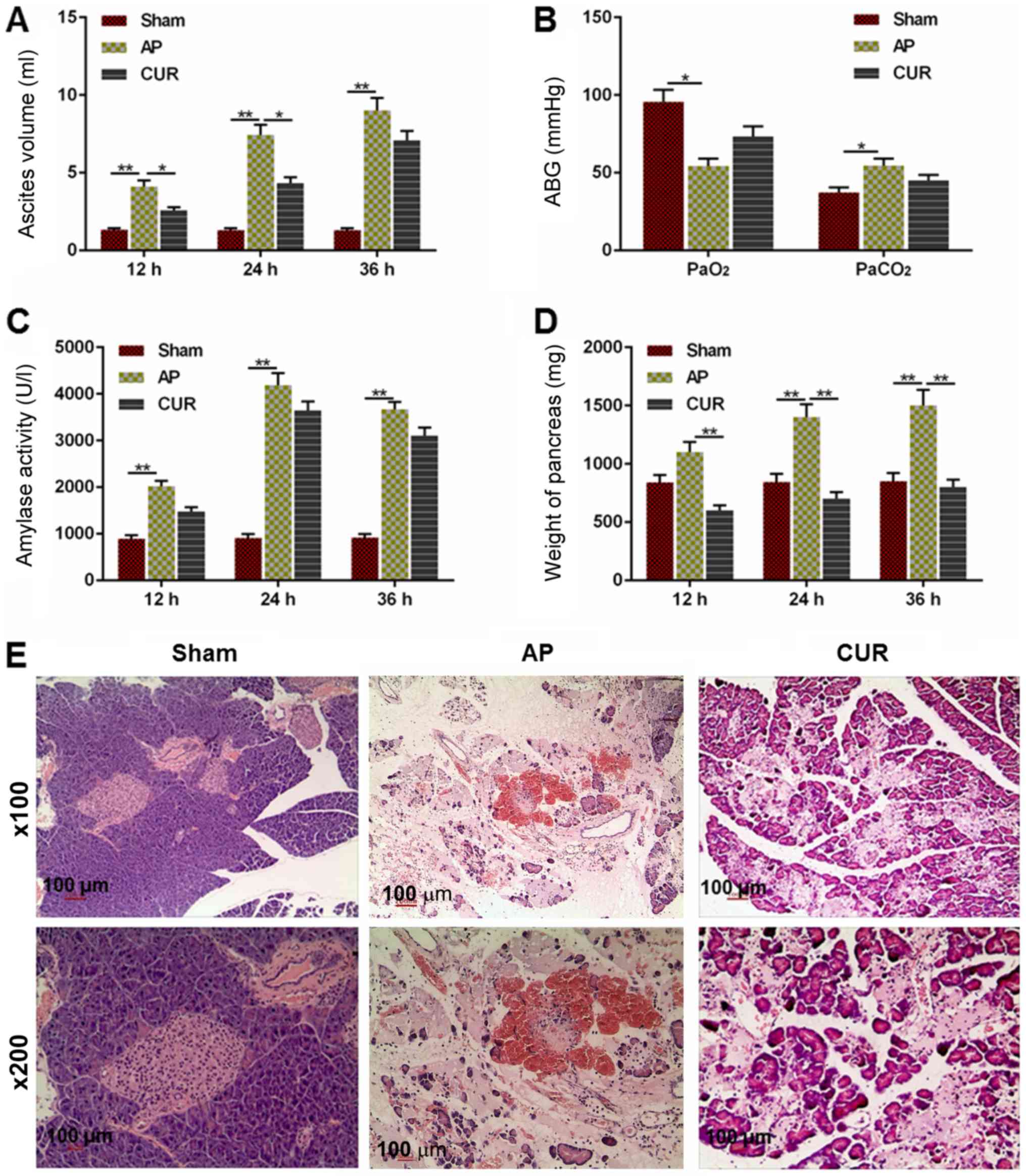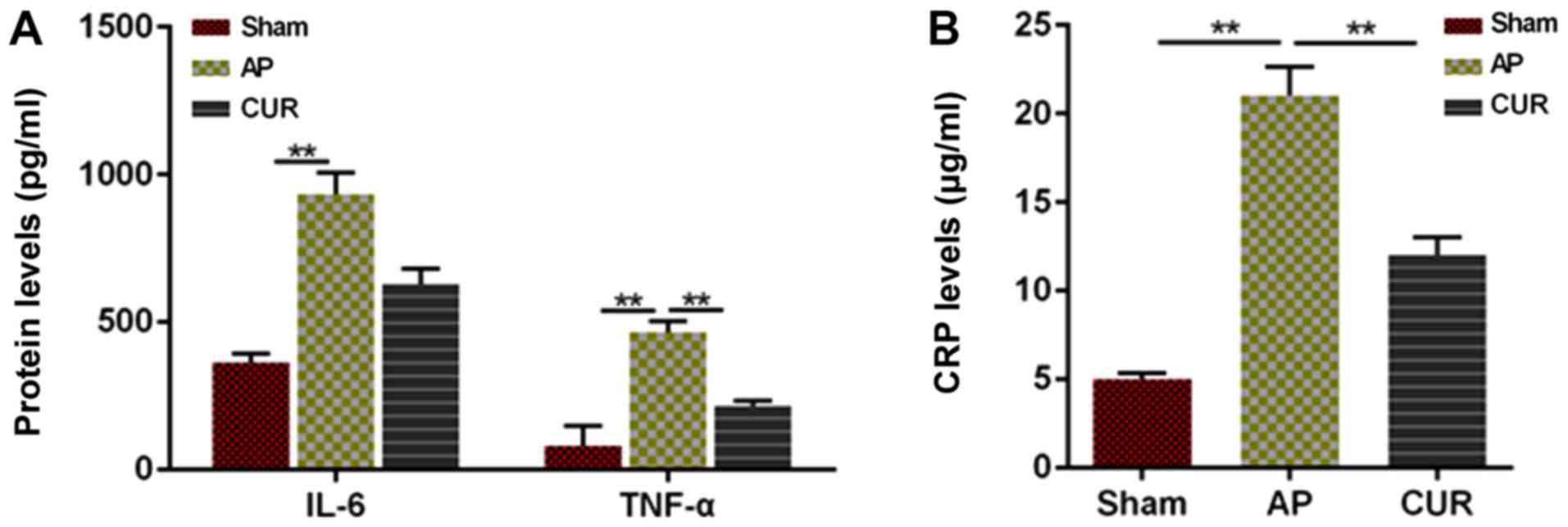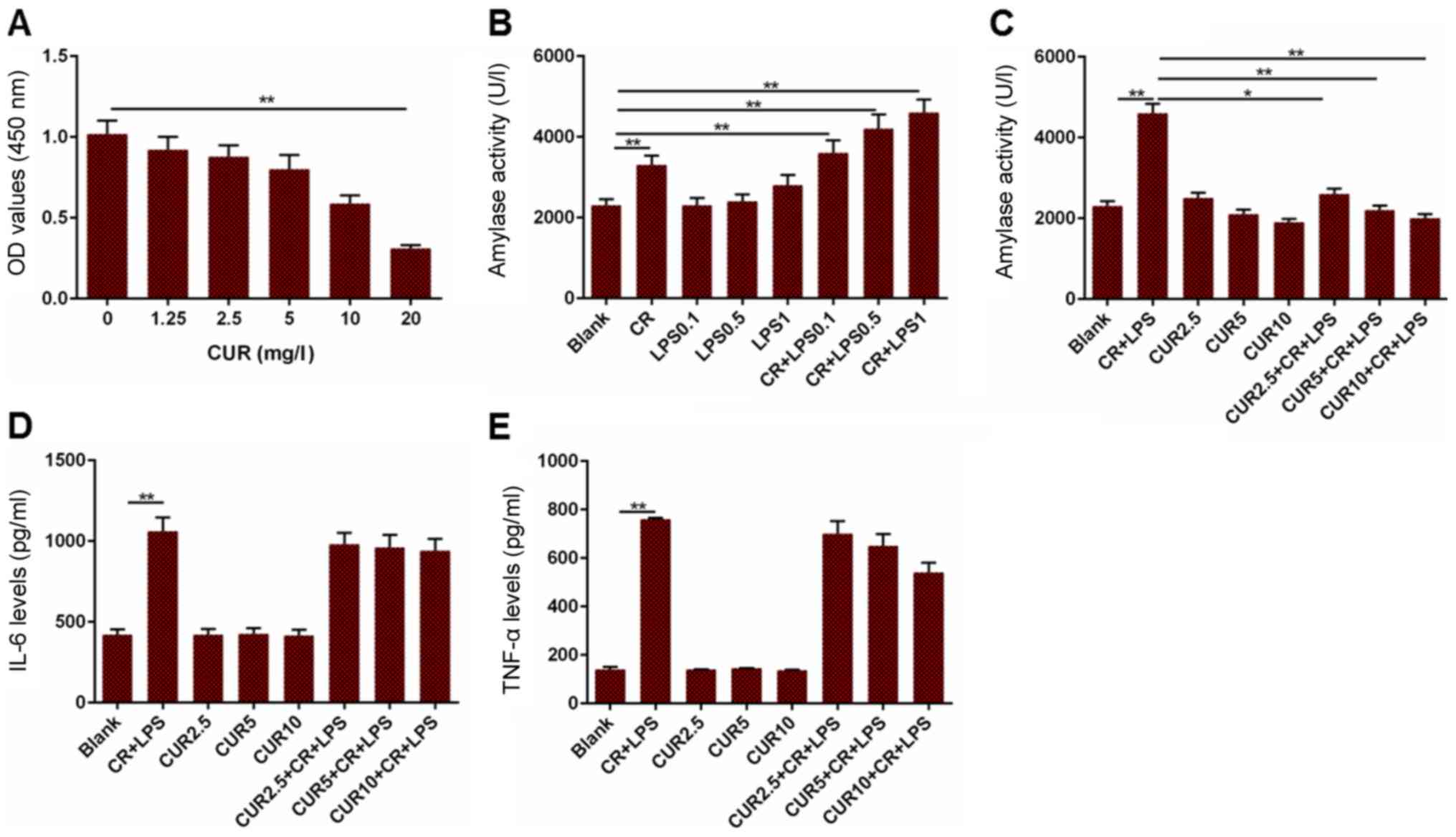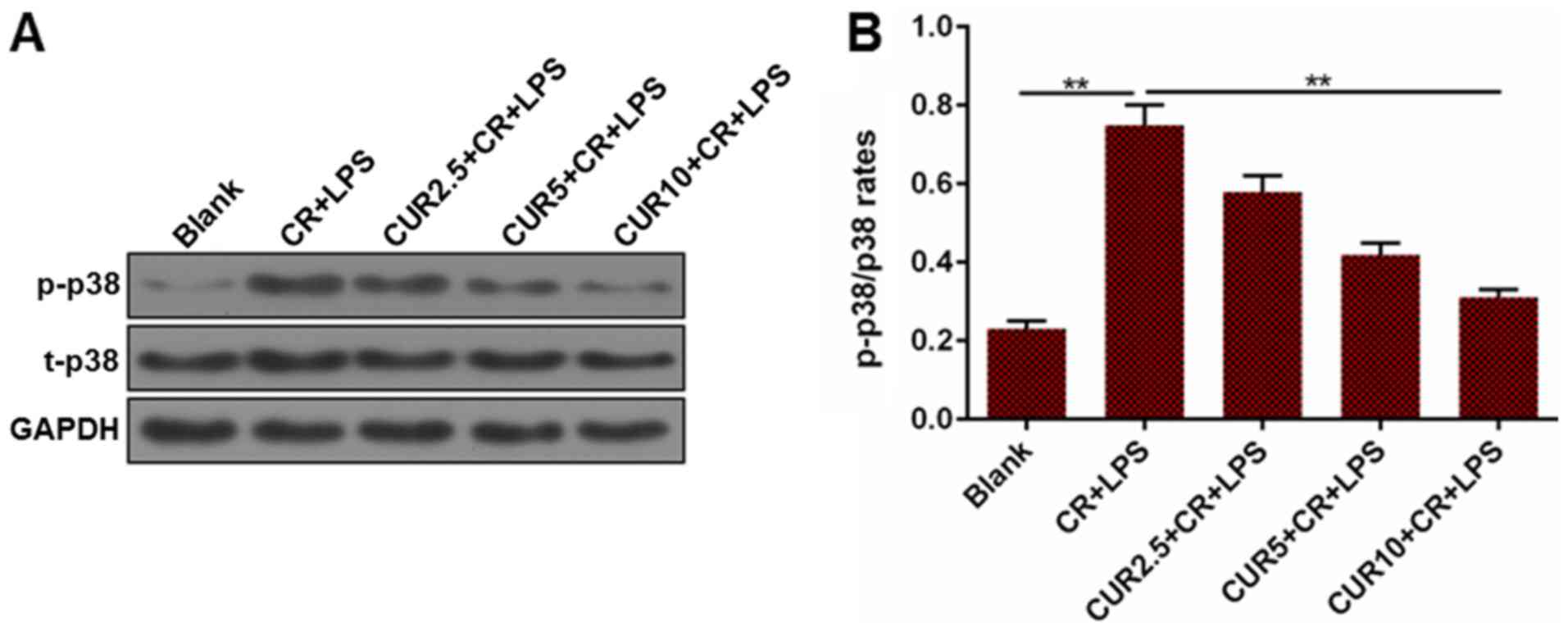|
1
|
Golay V and Roychowdhary A: Acute
pancreatitis in chronic kidney disease-a common but often
misunderstood combination. Ren Fail. 34:1338–1340. 2012. View Article : Google Scholar : PubMed/NCBI
|
|
2
|
Cavestro GM, Leandro G, Di Leo M, Zuppardo
RA, Morrow OB, Notaristefano C, Rossi G, Testoni SG, Mazzoleni G,
Alessandri M, et al: A single-centre prospective, cohort study of
the natural history of acute pancreatitis. Dig Liver Dis.
47:205–210. 2015. View Article : Google Scholar : PubMed/NCBI
|
|
3
|
Okuturlar Y, Soylu A, Dogan H, Cakmak S,
Kirac Utku I, Oztosun B, Akarsu C, Ocak Serin S, Avci A, Kones O,
et al: Mean platelet volume in patients with biliary and
non-biliary acute pancreatitis. Int J Clin Exp Pathol. 8:2051–2056.
2015.PubMed/NCBI
|
|
4
|
Albulushi A, Siddiqi A, Alqarshoubi I,
Aladawi M, Alkhadhouri G and Farhan H: Pattern of acute
pancreatitis in a tertiary care center in oman. Oman Med J.
29:358–361. 2014. View Article : Google Scholar : PubMed/NCBI
|
|
5
|
Dabrowski A, Osada J, Dabrowska MI,
Wereszczynska-Siemiatkowska U and Siemiatkowski A: Increased
expression of the intercellular adhesion molecule-1 (ICAM-1) on
peripheral blood neutrophils in acute pancreatitis. Adv Med Sci.
59:102–107. 2014. View Article : Google Scholar : PubMed/NCBI
|
|
6
|
Shen SQ, Zhang Y, Xiang JJ and Xiong CL:
Protective effect of curcumin against liver warm
ischemia/reperfusion injury in rat model is associated with
regulation of heat shock protein and antioxidant enzymes. World J
Gastroenterol. 13:1953–1961. 2007. View Article : Google Scholar : PubMed/NCBI
|
|
7
|
Jurenka JS: Anti-inflammatory properties
of curcumin, a major constituent of Curcuma longa: A review of
preclinical and clinical research. Altern Med Rev. 14:141–153.
2009.PubMed/NCBI
|
|
8
|
Anchi P, Khurana A, Swain D, Samanthula G
and Godugu C: Sustained-release curcumin microparticles for
effective prophylactic treatment of exocrine dysfunction of
pancreas: A preclinical study on cerulein-induced acute
pancreatitis. J Pharm Sci. 107:2869–2882. 2018. View Article : Google Scholar : PubMed/NCBI
|
|
9
|
Zhu S, Zhang C, Weng Q and Ye B: Curcumin
protects against acute renal injury by suppressing JAK2/STAT3
pathway in severe acute pancreatitis in rats. Exp Ther Med.
14:1669–1674. 2017. View Article : Google Scholar : PubMed/NCBI
|
|
10
|
Zhai KF, Duan H, Khan GJ, Xu H, Han FK,
Cao WG, Gao GZ, Shan LL and Wei ZJ: Salicin from alangium chinense
ameliorates rheumatoid arthritis by modulating the Nrf2-HO-1-ROS
pathways. J Agric Food Chem. 66:6073–6082. 2018. View Article : Google Scholar : PubMed/NCBI
|
|
11
|
Dugernier TL, Laterre PF, Wittebole X,
Roeseler J, Latinne D, Reynaert MS and Pugin J:
Compartmentalization of the inflammatory response during acute
pancreatitis: Correlation with local and systemic complications. Am
J Respir Crit Care Med. 168:148–157. 2003. View Article : Google Scholar : PubMed/NCBI
|
|
12
|
Polyzogopoulou E, Bikas C, Danikas D,
Koutras A, Kalfarentzos F and Gogos CA: Baseline hypoxemia as a
prognostic marker for pulmonary complications and outcome in
patients with acute pancreatitis. Dig Dis Sci. 49:150–154. 2004.
View Article : Google Scholar : PubMed/NCBI
|
|
13
|
Cöl C, Dinler K, Hasdemir AO and Bugdayci
G: The effect of an intraperitoneal injection of melatonin on serum
amylase levels in acute pancreatitis. JOP. 10:306–309.
2009.PubMed/NCBI
|
|
14
|
Bonior J, Warzecha Z, Ceranowicz P,
Gajdosz R, Pierzchalski P, Kot M, Leja-Szpak A, Nawrot-Porąbka K,
Link-Lenczowski P, Pędziwiatr M, et al: Capsaicin-sensitive sensory
nerves are necessary for the protective effect of ghrelin in
cerulein-induced acute pancreatitis in rats. Int J Mol Sci.
18(pii): E14022017. View Article : Google Scholar : PubMed/NCBI
|
|
15
|
Bishehsari F, Sharma A, Stello K, Toth C,
O'Connell MR, Evans AC, LaRusch J, Muddana V, Papachristou GI and
Whitcomb DC: TNF-alpha gene (TNFA) variants increase risk for
multi-organ dysfunction syndrome (MODS) in acute pancreatitis.
Pancreatology. 12:113–118. 2012. View Article : Google Scholar : PubMed/NCBI
|
|
16
|
Malleo G, Mazzon E, Siriwardena AK and
Cuzzocrea S: Role of tumor necrosis factor-alpha in acute
pancreatitis: From biological basis to clinical evidence. Shock.
28:130–140. 2007. View Article : Google Scholar : PubMed/NCBI
|
|
17
|
Culić O, Eraković V, Cepelak I, Barisić K,
Brajsa K, Ferencić Z, Galović R, Glojnarić I, Manojlović Z, Munić
V, et al: Azithromycin modulates neutrophil function and
circulating inflammatory mediators in healthy human subjects. Eur J
Pharmacol. 450:277–289. 2002. View Article : Google Scholar : PubMed/NCBI
|
|
18
|
Bezmarevic M, Mirkovic D, Soldatovic I,
Stamenkovic D, Mitrovic N, Perisic N, Marjanovic I, Mickovic S and
Karanikolas M: Correlation between procalcitonin and
intra-abdominal pressure and their role in prediction of the
severity of acute pancreatitis. Pancreatology. 12:337–343. 2012.
View Article : Google Scholar : PubMed/NCBI
|
|
19
|
Zhong K: Curcumin Mediates a Protective
effect via TLR-4/NF-κB signaling pathway in rat model of severe
acute pancreatitis. Cell Biochem Biophys. 73:175–180. 2015.
View Article : Google Scholar : PubMed/NCBI
|
|
20
|
Gulcubuk A, Altunatmaz K, Sonmez K,
Haktanir-Yatkin D, Uzun H, Gurel A and Aydin S: Effects of curcumin
on tumour necrosis factor-alpha and interleukin-6 in the late phase
of experimental acute pancreatitis. J Vet Med A Physiol Pathol Clin
Med. 53:49–54. 2006. View Article : Google Scholar : PubMed/NCBI
|
|
21
|
Fisic E, Poropat G, Bilic-Zulle L, Licul
V, Milic S and Stimac D: The role of IL-6, 8, and 10, sTNFr, CRP,
and pancreatic elastase in the prediction of systemic complications
in patients with acute pancreatitis. Gastroenterol Res Pract.
2013:2826452013. View Article : Google Scholar : PubMed/NCBI
|
|
22
|
Bimonte S, Barbieri A, Palma G, Luciano A,
Rea D and Arra C: Curcumin inhibits tumor growth and angiogenesis
in an orthotopic mouse model of human pancreatic cancer. Biomed Res
Int. 2013:8104232013. View Article : Google Scholar : PubMed/NCBI
|
|
23
|
Qin T, Fu Q, Pan YF, Liu CJ, Wang YZ, Hu
MX, Tang Q and Zhang HW: Expressions of miR-22 and miR-135a in
acute pancreatitis. J Huazhong Univ Sci Technolog Med Sci.
34:225–233. 2014. View Article : Google Scholar : PubMed/NCBI
|
|
24
|
Patel K, Durgampudi C, Noel P, Trivedi RN,
de Oliveira C and Singh VP: Fatty acid ethyl esters are less toxic
than their parent fatty acids generated during acute pancreatitis.
Am J Pathol. 186:874–884. 2016. View Article : Google Scholar : PubMed/NCBI
|
|
25
|
Talukdar R, Sareen A, Zhu H, Yuan Z, Dixit
A, Cheema H, George J, Barlass U, Sah R, Garg SK, et al: Release of
cathepsin b in cytosol causes cell death in acute pancreatitis.
Gastroenterology. 151:747–758.e5. 2016. View Article : Google Scholar : PubMed/NCBI
|
|
26
|
Yu S, Wang M, Guo X and Qin R: Curcumin
attenuates inflammation in a severe acute pancreatitis animal model
by regulating TRAF1/ASK1 signaling. Med Sci Monit. 24:2280–2286.
2018. View Article : Google Scholar : PubMed/NCBI
|
|
27
|
Samuel I, Zaheer A and Fisher RA: In vitro
evidence for role of ERK, p38, and JNK in exocrine pancreatic
cytokine production. J Gastrointest Surg. 10:1376–1383. 2006.
View Article : Google Scholar : PubMed/NCBI
|
|
28
|
Chen P, Huang L, Zhang Y, Qiao M and Yuan
Y: SiRNA-mediated PIAS1 silencing promotes inflammatory response
and leads to injury of cerulein-stimulated pancreatic acinar cells
via regulation of the P38MAPK signaling pathway. Int J Mol Med.
26:619–626. 2010.PubMed/NCBI
|
|
29
|
Kim D and Haynes CL: The role of p38 MAPK
in neutrophil functions: Single cell chemotaxis and surface marker
expression. Analyst. 138:6826–6833. 2013. View Article : Google Scholar : PubMed/NCBI
|
|
30
|
Kim HA, Kim KJ, Seo KH, Lee HK and Im SY:
PTEN/MAPK pathways play a key role in platelet-activating
factor-induced experimental pulmonary tumor metastasis. FEBS Lett.
586:4296–4302. 2012. View Article : Google Scholar : PubMed/NCBI
|
|
31
|
Lee SJ, Kim WJ and Moon SK: Role of the
p38 MAPK signaling pathway in mediating interleukin-28A-induced
migration of UMUC-3 cells. Int J Mol Med. 30:945–952. 2012.
View Article : Google Scholar : PubMed/NCBI
|


















